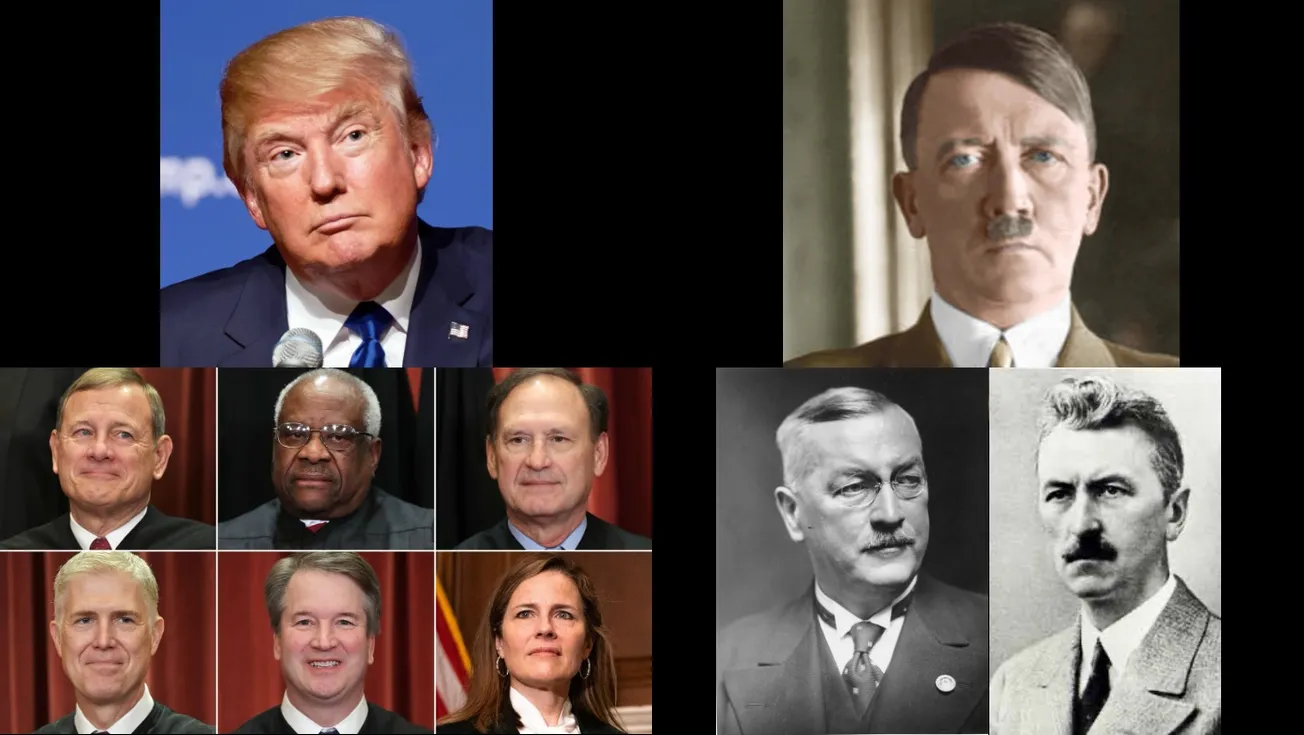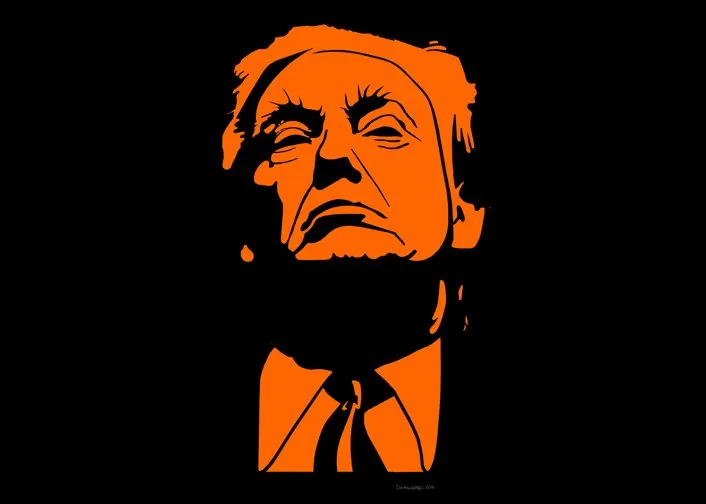A century ago this month, Adolf Hitler was on trial for treason for trying to overthrow the Bavarian government. The failed coup went down in history as the Beer Hall Putsch because Hitler hatched the plot in a beer hall in Munich, Bavaria’s capital.
Hitler was convicted on April 1, 1924. A sympathetic far-right-wing judge gave Hitler just five years in a minimum security prison. Hitler was out in 9 months.
Donald Trump faces four felony trials in state and federal courts. Two of them stem from his attempt to overturn the 2020 election.
Trump at least wants the trials postponed until after the election, because polling shows that convictions could swing the vote to President Biden. Thanks to decisions by right-wing federal jurists, including four Trump appointees, it seems likely Trump will get his wish.
The Beer Hall Putsch and January 6
Hitler sprung the Beer Hall Putsch on the night of Nov. 8, 1923. Police stopped him and his armed Nazi thugs in a shootout the next day.
Hitler expected the insurrection to succeed and lead to a Nazi takeover of the Weimar Republic, the name of Germany’s fledgling post-World War I democracy. Hitler wanted to become dictator of the new Nazi Germany, but his dream was deferred until 1933.
A federal grand jury in Washington, D.C., indicted Trump on charges that he incited the MAGA mob that stormed the Capitol on Jan. 6, 2021, aiming to keep him president by forcing a halt to the electoral vote count. A Florida federal grand jury indicted Trump on charges that, after he left office, he illegally stashed sensitive and classified government documents at his Mar-a-Lago home and refused to turn them over to federal authorities.
The Trump-appointed federal judge who will preside over the documents case is using dubious pre-trial procedures to slow-walk the start of that trial.
The Supreme Court, with a 6-3 conservative majority, including a trio of Trump-picked justices, handed down a decision that will stall the Jan. 6 trial. “The court agreed to hear Trump’s claim that he is immune from prosecution because the alleged crimes occurred while he was president,” explained The New York Times's Dave Leonardt. “The justices scheduled arguments about his immunity claim for April, which is likely to push back the start of any trial until at least September. The court’s move reduces the chances of a trial verdict before Election Day.”
Added Leonhardt: “In doing so, the court has almost certainly helped Trump’s campaign. He has made clear that delay is central to his strategy for fighting the cases against him. And for obvious reason: If he becomes president again, he can order the Justice Department to end any federal case against him. The delays also make it more likely that he will become president again. The public will be less focused on his attempts to overturn the 2020 election if he isn’t on trial for them. Polls have also found that a significant share of Trump’s current supporters claim they will not vote for him if he is convicted."
Equal justice for all?
Judges were supposed to be impartial dispensers of equal justice for all in the Weimar Republic. The American court system is supposed to be based on the same principle.
Hitler lucked out with the Munich judge. But after he became dictator, he wanted to make sure all trials came out like he wanted. So he Nazified the judicial system, aligning it “with Nazi goals,” explained the Holocaust Encyclopedia online. Hitler purged “Jewish and also Socialist judges, lawyers, and other court officers from their professions,” according to the Encyclopedia. “Further, the Academy of German Law and Nazi legal theorists ... advocated the nazification of German law, cleansing it of ‘Jewish influence.’”
It's not a stretch to imagine Trump somehow trying to “cleanse” the federal judiciary of “Biden influence.”
Hitler’s demand for unswerving fealty led him to force members of the German military, judiciary, and civil service to swear an oath of personal loyalty to him. If he is reelected, Trump might not demand such a formal oath. But the main requirement for an appointment to the federal bench — or to any federal post — would be absolute fidelity to Trump.
Hitler outlawed all political parties but the Nazi Party. He had his political opponents murdered or thrown into concentration camps.
“Donald Trump has vowed, repeatedly, to weaponize state power against his political enemies if granted a second term,” Catherine Rampell wrote in The Washington Post.
Trump indeed plans to punish his opponents, “criminally or civilly,” according to Kash Patel, a Trump loyalist and authoritarian who is likely to become an administration insider again. “We will go out and find the conspirators, not just in government but in the media,” Patel boasted. “Yes, we’re going to come after the people in the media who lied about American citizens, who helped Joe Biden rig presidential elections – we’re going to come after you.”
Wrote Peter Stone in The Guardian: “... Scholars and ex-justice officials see increasing evidence that if they achieved power again, Trump and his MAGA allies plan to tighten his control at key agencies and install trusted loyalists in top posts at the DOJ and the FBI, permitting Trump more leeway to exact revenge on foes, and shrinking agencies Trump sees as harboring ‘deep state’ critics.
“Ominously, Trump has threatened to tap a special prosecutor to ‘go after’ Biden and his family. Trump’s angry mindset was revealed on Veterans Day when he denigrated foes as ‘vermin’ who needed to be ‘rooted out,’ echoing fascist rhetoric from Italy and Germany in the 1930s.”
Warned Rampell: “Voters should take [Trump] at his word, for two reasons: First, he tried to do this before, marshaling government might against individuals, demographic groups, and specific businesses. He was constrained only by courts and uncooperative aides. Second, he’s assembling the infrastructure necessary to clear these obstacles next time.”
--30--
Comments








